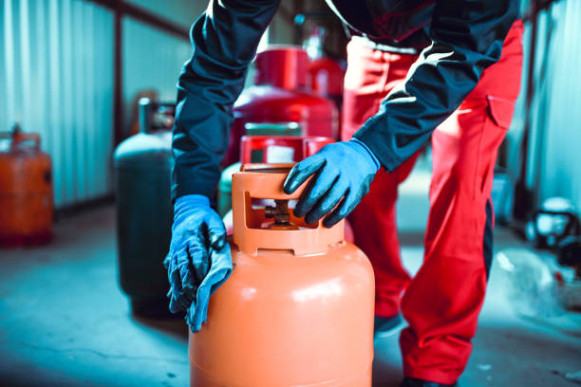- 4292
- 0
Sharing Ideas and Updates on LPG in Nigeria and related information to enable effective collaboration within the LPG Value Chain
Public And Private Sectors In Nigeria's LPG Industry: Roles, Relevance, And Collaboration.

The Nigerian Liquefied Petroleum Gas (LPG) industry is shaped by the active involvement of both the public and private sectors. Let’s delves into the distinct roles of the public and private sectors in the LPG industry, explores their relevance, and emphasizes the significance of collaboration between them for the sustainable growth and development of the sector.
PUBLIC SECTOR IN THE LPG INDUSTRY:
Policy Formulation and Regulation: The public sector, primarily represented by government agencies, formulates policies and regulations to govern the LPG industry. This includes licensing, safety standards, pricing regulations, and environmental guidelines. By establishing a clear regulatory framework, the public sector ensures a level playing field, safety compliance, and consumer protection. Here one can put core industry players like the Federal Government, NMDPRA, NLNG, and NNPC at the forefront.
Infrastructure Development: The public sector plays a vital role in developing the necessary infrastructure for the LPG industry, thus. This includes the construction of LPG storage facilities, transportation networks, and distribution infrastructure. Government agencies invest in expanding storage capacities, establishing filling stations, and improving LPG supply chains to ensure a reliable and accessible LPG market. Thus, we will be looking at public depot owners as they also play a vital role in infrastructure development.
Market Monitoring and Oversight: Public agencies like the NCDMB monitor the LPG market to prevent anti-competitive practices, price manipulation, and ensure fair trade. Market monitoring activities help in maintaining a competitive market environment, promoting transparency, and protecting consumer interests.
PRIVATE SECTOR IN THE LPG INDUSTRY:
Investment and Operations: The private sector, comprising LPG companies, distributors, retailers, and other market players, invests in the establishment and operation of LPG infrastructure and services. Private companies contribute capital, technical expertise, and innovation to enhance the efficiency and effectiveness of LPG operations.
Supply Chain Management: Private entities are responsible for managing the supply chain, including sourcing LPG from domestic or international markets, transportation, bottling, and distribution. They ensure the availability and accessibility of LPG to meet consumer demand, creating a robust and efficient supply chain network.
Marketing and Consumer Engagement: Private companies play a crucial role in marketing LPG products, raising consumer awareness, and promoting the benefits of LPG usage. They develop marketing strategies, branding initiatives, and consumer education campaigns to drive LPG adoption, especially among households and businesses.
COLLABORATION BETWEEN THE PUBLIC AND PRIVATE SECTORS:
Policy Alignment and Support: Collaboration between the public and private sectors is essential for aligning policies, regulations, and initiatives. The public sector can provide an enabling environment by developing supportive policies, granting incentives, and facilitating public-private partnerships to attract private investment and promote LPG growth.
Infrastructure Development and Financing: Public-private collaboration can accelerate infrastructure development by leveraging the strengths and resources of both sectors. The public sector can provide funding, land allocation, and regulatory support, while private entities bring technical expertise, project management capabilities, and financial investments to infrastructure projects.
Capacity Building and Training: Collaborative efforts can focus on capacity building programs and training initiatives to enhance skills, knowledge, and safety practices across the LPG value chain. The public sector can provide training facilities and expertise, while private companies contribute industry-specific insights and practical experience to develop a skilled workforce.
The public and private sectors in Nigeria's LPG industry play distinct yet complementary roles in driving growth, ensuring safety, and expanding access to clean energy. Collaboration between these sectors is crucial for policy alignment, infrastructure development, market expansion, and consumer engagement. By working together, they can harness their respective strengths, address industry challenges, and promote a sustainable and thriving LPG sector in Nigeria.
















0 Comment.